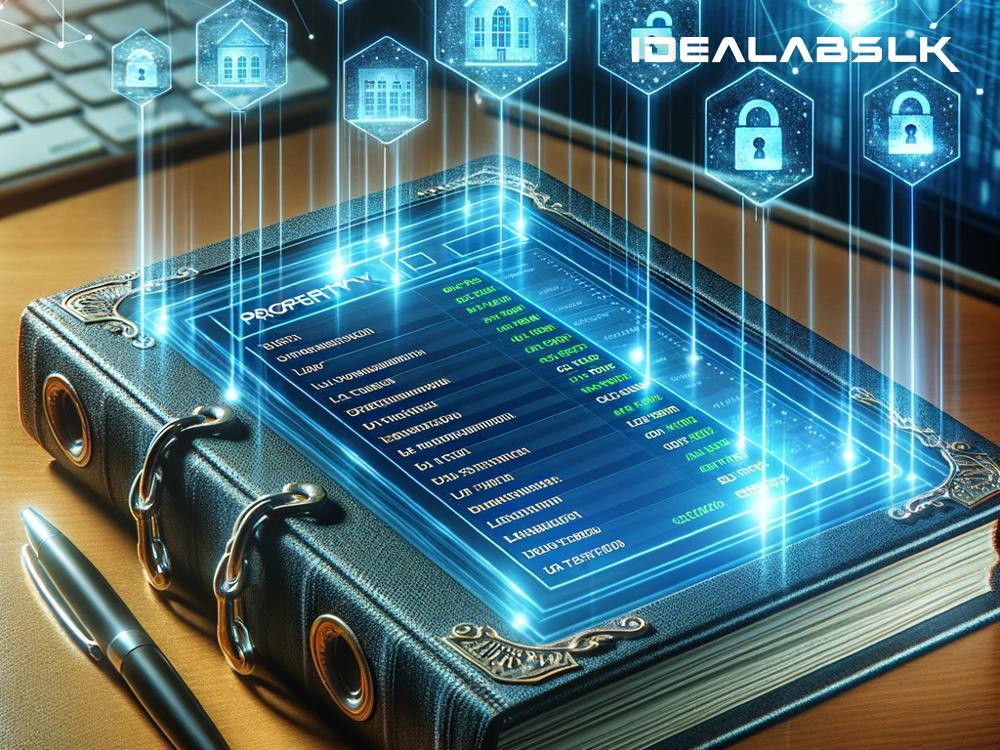Title: Unlocking the Power of Blockchain for Enhanced Real Estate Data Security and Privacy
The real estate sector, bustling with a myriad of transactions, documentation, and sensitive data, necessitates an impregnable fortress to safeguard its information. Enter Blockchain, the revolutionary technology, best known for its debut with cryptocurrencies like Bitcoin, is now making significant inroads into real estate. Its promise of enhanced data security and privacy is not just a buzzword but a tangible benefit that is transforming the industry. Let’s break down how Blockchain is reshaping real estate data security and privacy, simplifying the complexities to understand its true value.
Understanding Blockchain in Simple Terms
Imagine a digital ledger that is not stored in one single place but is distributed across numerous computers around the world. This ledger securely records transactions, which, once entered, cannot be altered or erased. Each piece of information added is linked to the previous and subsequent pieces, forming a chain. Hence, the term "Blockchain." This unique feature makes it an extremely secure and transparent way to manage data.
The Real Estate Conundrum: Privacy and Security Challenges
Real estate transactions involve sensitive personal information, including financial details, property records, and identification documents. Traditional systems, while functional, are fraught with risks such as data breaches, fraud, and human errors. Moreover, the current processes are often slow and cumbersome, hinged on paperwork and manual verification. This is where Blockchain jumps in as a game-changer.
Blockchain to the Rescue: Enhancing Security and Privacy
-
Immutable Records: Blockchain's structure ensures that once a transaction is recorded, it cannot be altered or deleted by anyone, making data tamper-proof. This immutability provides a higher level of security, significantly reducing the risk of fraud.
-
Decentralization: Unlike traditional centralized databases vulnerable to attacks, Blockchain's distributed ledger is spread across numerous nodes (computers). This decentralization means no single point of failure, making it incredibly secure against data breaches.
-
Transparency and Privacy: While Blockchain is transparent and allows parties to view transaction histories, it also offers privacy. Sensitive information can be encrypted and controlled through smart contracts, allowing access only to authorized individuals. This blend of transparency and privacy is crucial in maintaining trust in real estate transactions.
-
Smart Contracts: These self-executing contracts with the terms directly written into lines of code automate and streamline real estate transactions, reducing the need for intermediaries. This not only speeds up processes but ensures that data privacy is maintained by executing transactions only when predefined conditions are met.
Practical Applications in Real Estate
-
Property Titles and Records: Blockchain can securely store property titles and historical records, making them easily accessible while preventing unauthorized alterations. This can help in quicker verification of property ownership, reducing fraud and speeding up property transactions.
-
Streamlining Transactions: By utilizing smart contracts, Blockchain can automate various steps in the real estate transaction process, from payments to transferring titles. This not only enhances privacy and security but also makes the process more efficient and less prone to human error.
-
Enhanced Due Diligence: Blockchain can securely store and share necessary documents for background checks, financial verifications, and other due diligence processes. This not only speeds up transactions but ensures that sensitive information is kept secure and private.
The Road Ahead
Though Blockchain technology is still in its early stages in the real estate industry, its potential is undeniable. Its application can revolutionize how data is managed, shared, and protected, offering a level of security and privacy previously unseen. However, widespread adoption will require overcoming regulatory hurdles, technological challenges, and ensuring all stakeholders are on board.
In conclusion, Blockchain technology holds the key to addressing many of the security and privacy challenges faced by the real estate sector today. By making transactions more secure, transparent, and efficient, Blockchain is not just a technological innovation but a catalyst for change, heralding a new era in real estate. As we move forward, embracing this technology can significantly enhance the integrity and trust in real estate transactions, making it a win-win for all parties involved.

